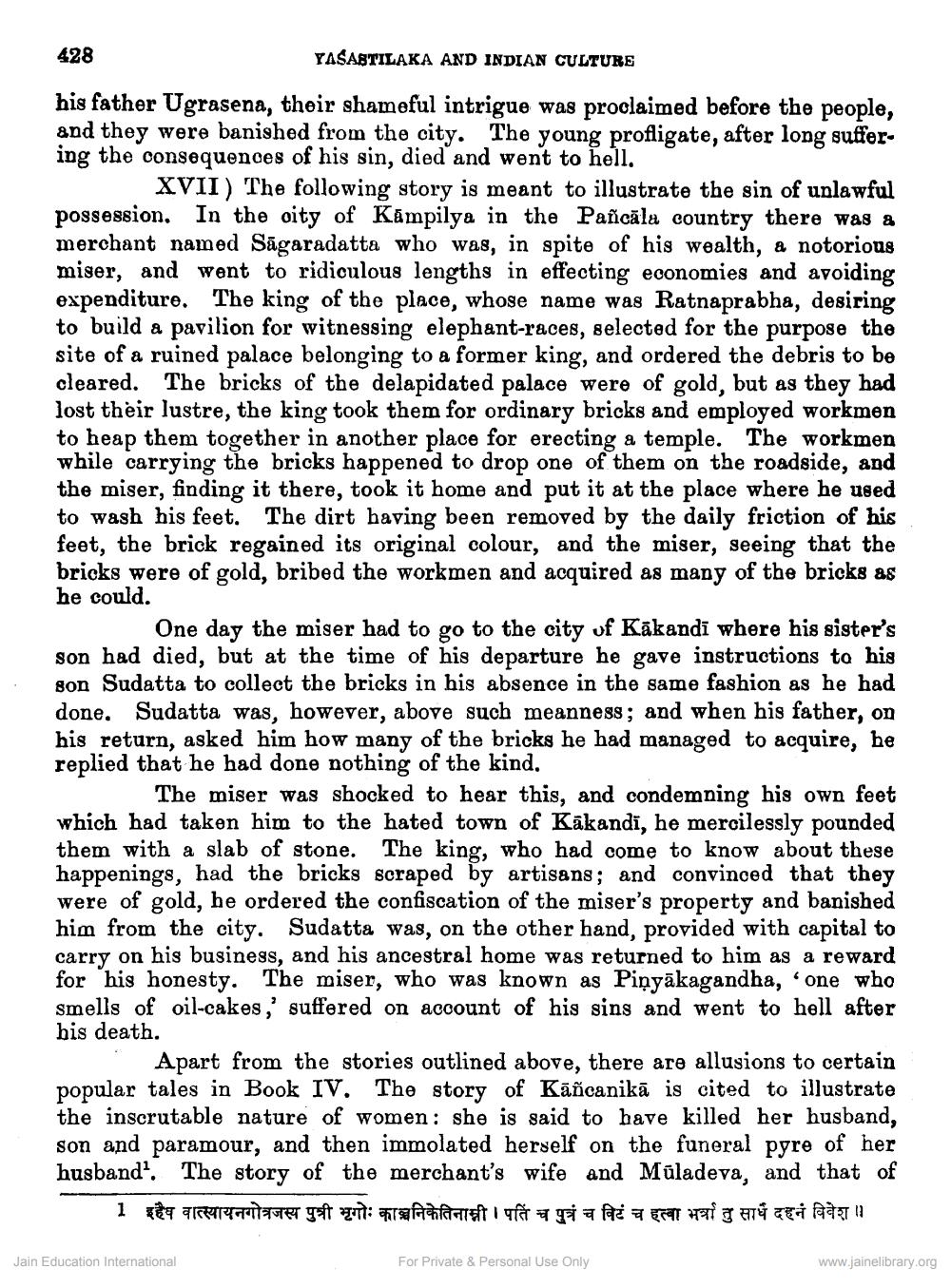________________
428
YASASTILAKA AND INDIAN CULTURE
his father Ugrasena, their shameful intrigue was proclaimed before the people, and they were banished from the city. The young profligate, after long suffering the consequences of his sin, died and went to hell.
XVII) The following story is meant to illustrate the sin of unlawful possession. In the oity of Kampilya in the Pañcala country there was a merchant named Sagaradatta who was, in spite of his wealth, a notorious miser, and went to ridiculous lengths in effecting economies and avoiding expenditure. The king of the place, whose name was Ratnaprabha, desiring to build a pavilion for witnessing elephant-races, selected for the purpose the site of a ruined palace belonging to a former king, and ordered the debris to be cleared. The bricks of the delapidated palace were of gold, but as they had lost their lustre, the king took them for ordinary bricks and employed workmen to heap them together in another place for erecting a temple. The workmen while carrying the bricks happened to drop one of them on the roadside, and the miser, finding it there, took it home and put it at the place where he used to wash his feet. The dirt having been removed by the daily friction of his feet, the brick regained its original colour, and the miser, seeing that the bricks were of gold, bribed the workmen and acquired as many of the bricks as he could.
One day the miser had to go to the city of Kakandi where his sister's son had died, but at the time of his departure he gave instructions to his son Sudatta to collect the bricks in his absence in the same fashion as he had done. Sudatta was, however, above such meanness; and when his father, on his return, asked him how many of the bricks he had managed to acquire, he replied that he had done nothing of the kind.
The miser was shocked to hear this, and condemning his own feet which had taken him to the hated town of Kakandi, he mercilessly pounded them with a slab of stone. The king, who had come to know about these happenings, had the bricks scraped by artisans; and convinced that they were of gold, he ordered the confiscation of the miser's property and banished him from the city. Sudatta was, on the other hand, provided with capital to carry on his business, and his ancestral home was returned to him as a reward for his honesty. The miser, who was known as Pinyakagandha, 'one who smells of oil-cakes,' suffered on account of his sins and went to hell after his death.
Apart from the stories outlined above, there are allusions to certain popular tales in Book IV. The story of Kañcanika is cited to illustrate the inscrutable nature of women: she is said to have killed her husband, son and paramour, and then immolated herself on the funeral pyre of her husband'. The story of the merchant's wife and Müladeva, and that of
1 इहैव वात्स्यायनगोत्रजस्य पुत्री भृगोः कालनिकेतिनाम्नी । पतिं च पुत्रं च विटं च हत्वा भर्त्रा तु साथै दहनं विवेश ॥
Jain Education International
For Private & Personal Use Only
www.jainelibrary.org




